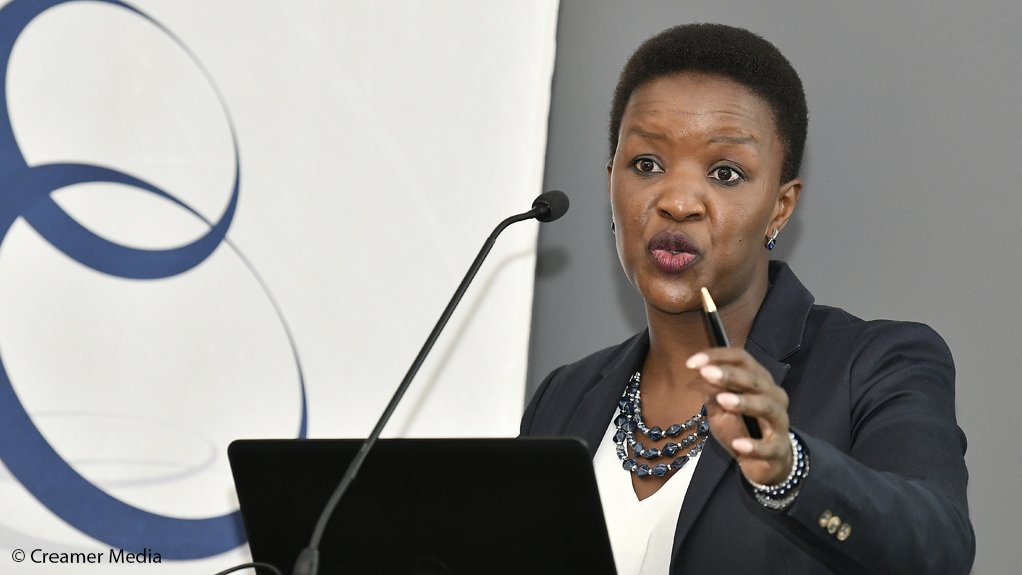The fight against corruption is “real and growing”, says Business Leadership South Africa (BLSA) CEO Busi Mavuso, who adds that President Cyril Ramaphosa’s swift action on the Covid-19-related corruption with the appointment of a multidisciplinary centre to tackle the matter is “an important and appropriate step”.
She laments though that South Africa’s criminal justice system “has been frustrated” by schisms between different agencies like the police and the National Prosecuting Agency (NPA), as well as sources of intelligence and investigations like the Financial Intelligence Centre and the South African Revenue Services (Sars).
“With nine agencies working together to deal with Covid-19 corruption, we may well see swift justice,” she says.
However, while South Africa has come a long way in changing perceptions and increasing the public’s confidence that corruption is not tolerated, Mavuso says in her weekly newsletter on August 24 that “unfortunately, with every step forward, [South Africa] seems to take another step backwards”.
With several recent contested appointments in the country, South Africa’s governing political party – the African National Congress (ANC) – “risks being seen increasingly at odds with the public”.
While government is making gradual progress towards dealing with corruption, Mavuso suggests that “if the party is serious about providing a better life for all”, it needs to be “deadly serious” about rooting out corruption from of its ranks.
As business, government, labour and civil society pull together to drive an economic recovery programme, the fight against corruption is a critical leg in the effort to restore investor confidence, she stresses.
Additionally, in her newsletter, she refers to academic studies wherein it states that corruption also increases inequality. While it invariably involves redirecting resources intended for the poor to powerful corrupt actors, corruption also makes countries poorer.
“While some have argued that corruption can grease the wheels of the economy, most of the evidence shows that it is sand in the economic engine. Corrupt countries are usually poorer because they are corrupt,” Mavuso laments, adding that “[corrupt countries] find it hard to escape poverty while being corrupt too – corrupt countries have lower domestic investment and far lower international investment rates, both of which result in low growth levels”.
While she warns that “one should not put too much stock in a few articles”, Mavuso laments that perceptions of corruption are certainly worsening.
“The important corruption index published by Transparency International shows we have trended weaker over the past two decades and in the last decade we have consistently rated below 50, the line between mostly corrupt and mostly not corrupt.”
While this is epitomised “clearly in the [country's] failure to deliver” much-needed social services during a health crisis, the long-term effect is worsening growth which compounds the poverty effects of corruption, Mavuso laments.
“Investors avoid corrupt countries because they cannot be sure of the stability of the environment and their rights over the long term, but also fear public perceptions of being caught up in corruption and legal consequences at home.”
EMAIL THIS ARTICLE SAVE THIS ARTICLE ARTICLE ENQUIRY FEEDBACK
To subscribe email subscriptions@creamermedia.co.za or click here
To advertise email advertising@creamermedia.co.za or click here











